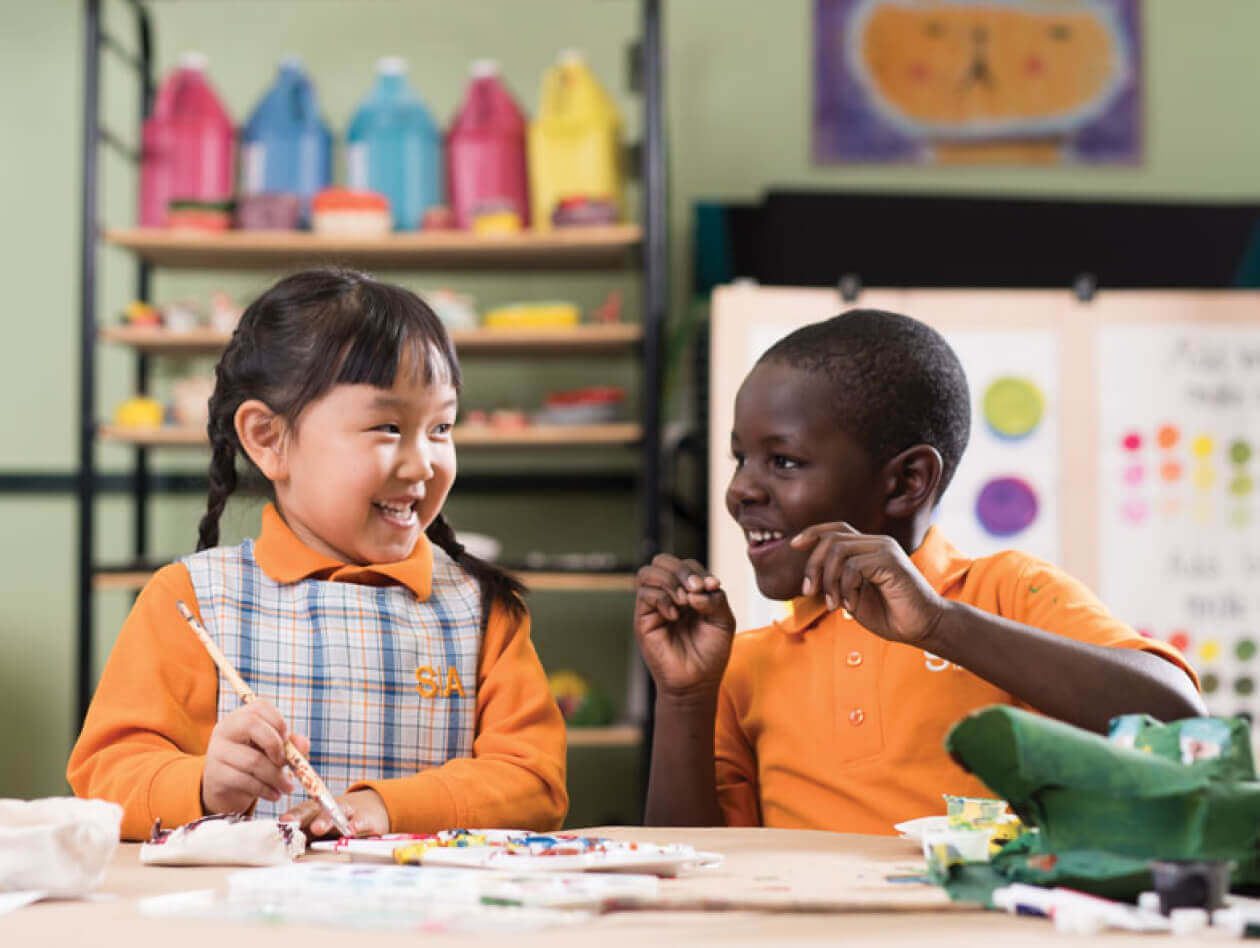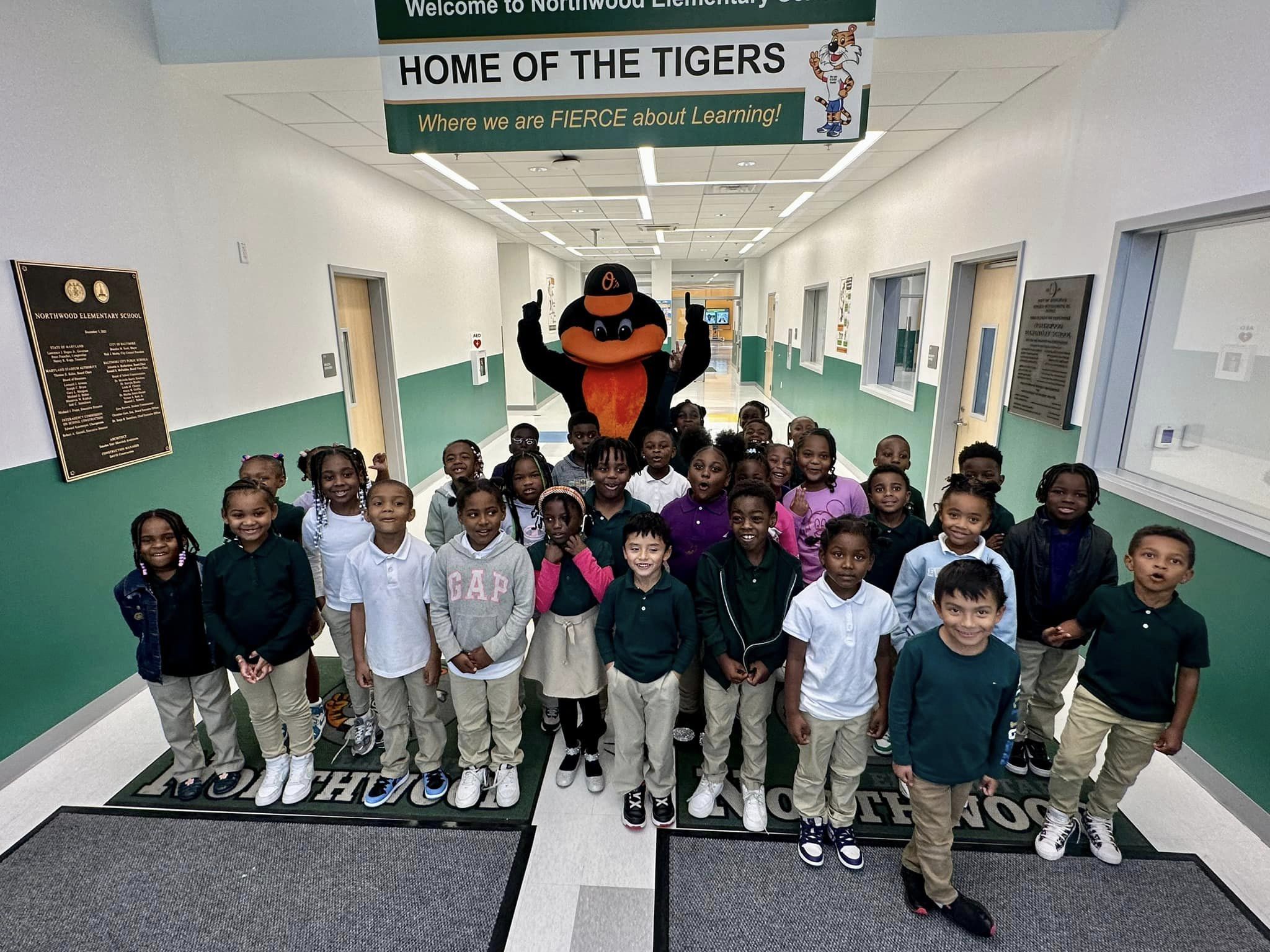Boosting cognitive abilities through structured learning in Kindergarten
Wiki Article
Everything about Preschool: Recognizing the Significance of Early Childhood Years Education And Learning Programs
Preschool serves as a critical point in a child's very early development. It presents fundamental skills essential for future discovering and social communications. Through different activities, kids engage in organized play that advertises cognitive development. Recognizing the subtleties of various preschool programs can even more brighten their significance. What specific advantages do these very early education and learning experiences use, and how do they shape a child's trajectory? The solutions might be a lot more complicated than one might expect.
The Role of Preschool in Kid Growth
Although some might check out preschool just as a transition stage before official schooling, it plays an important role in child advancement. This foundational phase promotes vital social, emotional, and cognitive abilities that are crucial for lifelong discovering. In preschool, children engage in structured play, which enhances their capacity to comply, share, and deal with conflicts with peers. These communications lay the foundation for healthy and balanced partnerships and improved interaction abilities.In enhancement, kindergarten introduces youngsters to basic concepts in proficiency and numeracy, stimulating interest and a love for discovering. Educators direct pupils with tasks that advertise important and analytical reasoning, necessary parts of intellectual growth. The setting highlights routine and framework, aiding kids develop self-discipline and self-reliance. By concentrating on holistic advancement, kindergarten assurances that kids are not only prepared academically but also socially and psychologically for the difficulties of future academic undertakings.
Key Benefits of Early Childhood Education
Early childhood education offers numerous benefits that can significantly affect a youngster's development and future success. Research study indicates that youngsters who take part in top quality early education and learning programs display improved cognitive abilities, much better language growth, and enhanced social skills compared to their peers that do not attend such programs. These foundational abilities are essential as they set the phase for scholastic accomplishment and long-lasting learning.Furthermore, early education and learning fosters emotional development by supplying kids with possibilities for cooperative play and dispute resolution, assisting them develop durability and empathy. Grade School. In addition, these programs usually help connect the gap for children from varied histories, guaranteeing fair accessibility to discovering sources and experiences
Inevitably, purchasing very early youth education and learning not just benefits individual youngsters however likewise contributes to stronger neighborhoods, as educated individuals are a lot more most likely to involve favorably in society and the labor force.
Different Kinds Of Kindergarten Programs
Numerous kindergarten programs deal with various instructional philosophies and needs. Full-day choices offer extended understanding time, while the Montessori strategy emphasizes independence and hands-on experiences. In addition, play-based knowing methods foster creative thinking and social abilities, highlighting the variety in early youth education and learning.Full-Day Preschool Options
Many parents and teachers identify the expanding significance of full-day kindergarten alternatives in early childhood years education. Full-day programs usually supply a more extensive understanding experience, enabling kids to participate in a range of tasks throughout the day. These options usually include a balanced educational program that incorporates scholastic, social, and emotional advancement. Some districts use standard full-day kindergarten, while others might offer specific programs, such as double language or thematic learning environments. In addition, full-day kindergarten can accommodate working parents by lining up school hours with normal work schedules. Research recommends that trainees in full-day programs commonly show boosted scholastic efficiency and social abilities compared to their peers in half-day settings, making these alternatives progressively preferred in several areas.Montessori Strategy Summary
Although the Montessori method is simply among several educational viewpoints, it has gained substantial interest for its one-of-a-kind focus on child-led learning and expedition. Developed by Dr. Maria Montessori, this approach concentrates on promoting self-reliance and self-directed activity in youngsters. Classrooms are typically created to urge activity and hands-on engagement with products, allowing kids to discover at their very own pace. Montessori educators serve as guides, facilitating discovering with monitoring rather than direct guideline. This technique prioritizes mixed-age classrooms, promoting cooperation and peer learning. Furthermore, the Montessori approach highlights functional life abilities and sensory tasks, assisting youngsters develop a solid foundation in both social and academic proficiencies. Moms and dads frequently appreciate the all natural development that this technique nurtures in their kids.Play-Based Understanding Techniques
Play-based knowing approaches are important to many preschool programs, highlighting the significance of play as a fundamental setting of discovering for little ones. These strategies encourage exploration, imagination, and social communication, enabling youngsters to take part in hands-on experiences that foster psychological and cognitive advancement. Different types of play, such as creative, useful, and physical play, are used to sustain discovering goals click to read more throughout subjects like science, proficiency, and mathematics. In addition, play-based programs often include collective activities, promoting teamwork and communication skills. Educators observe and direct children during play, guaranteeing that learning outcomes are attained while preserving a happy discovering environment. This method not only improves academic readiness but likewise grows a lifelong love for knowing, making it a necessary part of very early youth education.The Relevance of Play in Discovering
A substantial body of research emphasizes the critical duty of play in very early childhood education, highlighting its profound impact on understanding and growth. Play acts as a vital system whereby young kids explore their setting, establish cognitive skills, and boost their analytical capacities. Participating in imaginative play enables children to try out various duties and scenarios, cultivating creativity and vital thinking.Play-based learning encourages youngsters to involve with materials and concepts in a hands-on manner, making abstract ideas more substantial and reasonable. This experiential discovering approach not only catches children's interest however also promotes innate motivation, basic for lifelong knowing.
Via play, youngsters likewise improve their motor abilities and spatial understanding, laying the groundwork for more complex scholastic tasks. Essentially, prioritizing play in early childhood years education programs is vital for supporting holistic development, equipping children with the fundamental abilities necessary for their future educational journeys.
Social Abilities Advancement in Preschool
Building on the structure developed via play, kindergarten works as an important atmosphere for social skills development. During this formative stage, children participate in organized activities that urge communication with peers. With team jobs, participating video games, and shared tasks, they learn crucial abilities such as conflict, compassion, and communication resolution.Teachers help with these communications, directing youngsters in comprehending social cues and fostering positive partnerships. As children browse numerous social scenarios, they establish a sense of belonging and discover to appreciate diverse point of views.
Furthermore, kindergarten offers opportunities for youngsters to practice turn-taking, sharing, and arrangement, which are necessary for developing friendships. These experiences not just improve social proficiency however additionally add to psychological knowledge. Therefore, the social skills obtained in kindergarten lay the foundation for effective interactions in later instructional settings and throughout life. The value of social skills growth in kindergarten can not be overemphasized.
Adult Involvement in Early Education And Learning

When moms and dads demonstrate a passion in their youngster's education and learning, it cultivates a favorable perspective towards understanding. When they feel supported, youngsters are much more most likely to develop a sense of belonging and inspiration to do well. In addition, adult participation can boost a youngster's psychological well-being, bring about greater durability in encountering institution obstacles. Promoting a collaborative atmosphere between home and college is essential for maximizing early instructional experiences and outcomes.
Planning for the Shift to Primary School
As youngsters come close to the end of their preschool journey, planning for the adjustment to elementary college becomes progressively essential. This shift needs careful planning and support from both moms and dads and educators. Acquainting children with the brand-new environment, routines, and assumptions of primary school can relieve their anxiety and promote self-confidence.
Colleges typically provide orientation sessions that present kids to their future classrooms and instructors, fostering a sense of belonging. important source Additionally, moms and dads can take part in conversations about the adjustments in advance, highlighting the amazing possibilities for finding out and social communication.
Motivating freedom in day-to-day jobs, such as adhering to a routine and dressing, can additionally be helpful. Exercising vital skills, such as letter acknowledgment and basic try this website mathematics, prepares children academically for initial quality.
Ultimately, a collaborative initiative amongst parents, educators, and the community assures a smoother shift, laying a solid foundation for a successful academic journey.
Regularly Asked Inquiries
What Certifications Should Kindergarten Teachers Have?
Preschool educators must possess a bachelor's degree in early childhood education and learning or a relevant field, in addition to state accreditation. Extra credentials may consist of specialized training in youngster development, class management, and efficient teaching techniques.Just how Do I Choose the Right Preschool Program?
To choose the right kindergarten program, one need to take into consideration variables like educational program, teaching approaches, course size, instructor qualifications, and moms and dad reviews. Visiting centers and observing communications can also provide beneficial insights into the program's atmosphere.What Should My Child Learn in Kindergarten?
In kindergarten, a child needs to learn fundamental abilities such as basic analysis and writing, counting, social interactions, problem-solving, and electric motor abilities. These proficiencies promote cognitive advancement and prepare them for future educational difficulties.Are There Age Needs for Kindergarten Registration?
A lot of states require kids to be 5 years old by a certain day, commonly September 1st, for preschool registration. Certain age needs can vary, so checking local school district laws is crucial.Just How Can I Support My Youngster's Learning in your home?
To sustain a kid's understanding in the house, parents can establish a routine, offer appealing instructional products, encourage analysis, join hands-on tasks, and foster open interaction to nurture curiosity and important reasoning abilities.Preschool offers as a vital stage in a kid's early growth. Some might check out preschool merely as a changeover phase before official education, it plays a crucial role in kid development. In addition, preschool presents kids to fundamental ideas in literacy and numeracy, triggering interest and a love for understanding. Play-based discovering approaches are integral to numerous kindergarten programs, emphasizing the value of play as an essential mode of finding out for young children. In kindergarten, a child should find out foundational skills such as basic analysis and writing, counting, social communications, problem-solving, and motor abilities.
Report this wiki page